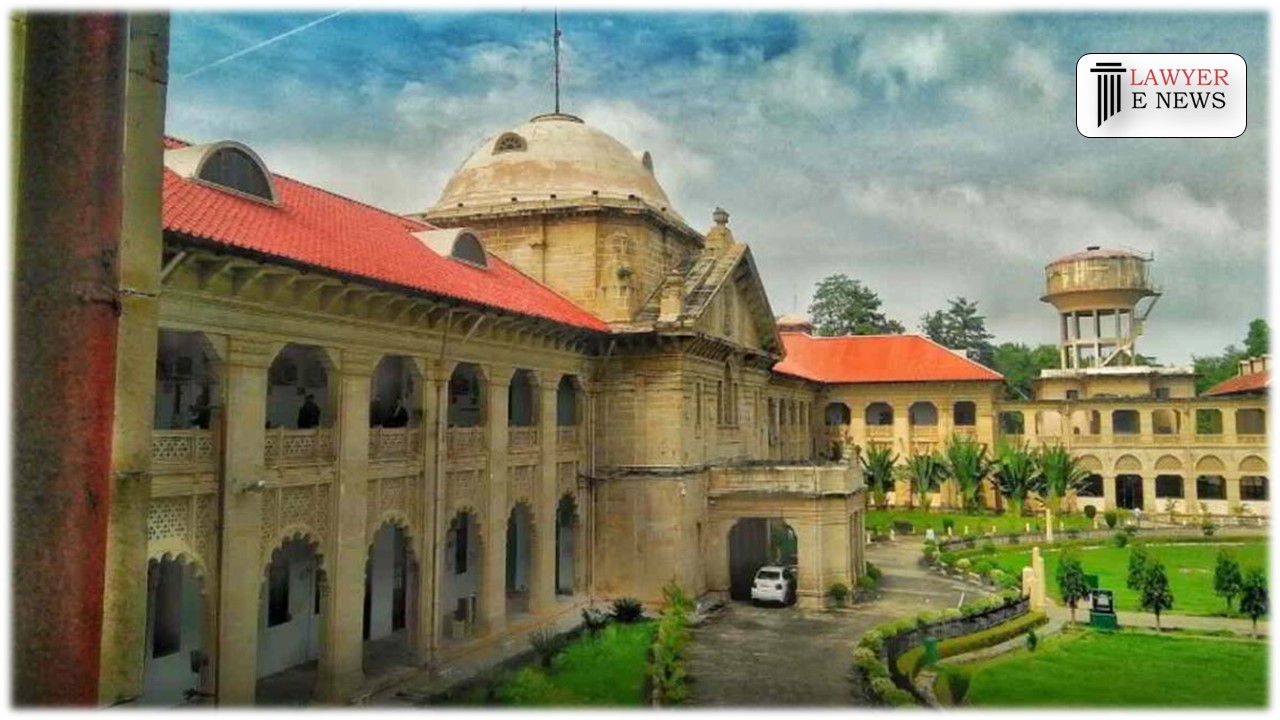-
by Admin
15 February 2026 5:35 AM



The High Court of Judicature at Allahabad has dismissed the government appeal challenging the acquittal of Ram Naresh Gupta and others in a high-profile case involving the alleged murder of a one-year-old child during a land dispute. The court upheld the trial court’s decision to convict the accused under Section 323/34 IPC for causing simple injuries while affirming their acquittal under Section 302/34 IPC due to inconsistent witness testimonies and lack of corroborative medical evidence.
The incident dates back to July 4, 1979, when a violent altercation erupted in the village of Khetkatawa over a disputed piece of land. Mahendra Prasad (P.W.-1), the complainant, alleged that the accused, Ram Naresh Gupta and his associates, attacked his family. During the altercation, it was claimed that Ram Naresh Gupta snatched a one-year-old child, Lilawati, from her mother’s lap and threw her to the ground, leading to her death. The trial court acquitted the accused of murder charges under Section 302/34 IPC but convicted them for inflicting simple injuries under Section 323/34 IPC.
Inconsistent Witness Testimonies: The court highlighted significant discrepancies in the testimonies of the prosecution’s key witnesses. Witnesses, including P.W.-1 Mahendra Prasad and P.W.-2 Rajendra Prasad, provided conflicting accounts of the incident. “There are major contradictions in the testimonies regarding the actions of the accused, particularly concerning the alleged snatching and throwing of the child,” the court observed.
Medical Evidence: Dr. R.A. Mishra, who conducted the post-mortem examination, found no external injuries on the child’s body and concluded that death was due to shock and haemorrhage from a ruptured spleen. The court noted, “The medical evidence does not support the prosecution’s narrative of intentional murder. The absence of visible injuries and the nature of the spleen rupture suggest alternative causes.”
The court reiterated the principles of criminal jurisprudence, emphasizing the prosecution’s burden to prove guilt beyond reasonable doubt. “The prosecution has not succeeded in establishing the guilt of the accused for murder. The inconsistencies in witness statements and the medical evidence do not support a conviction under Section 302/34 IPC,” the bench stated. However, the court found sufficient evidence to uphold the conviction for causing simple injuries under Section 323/34 IPC.
Justice Shiv Shanker Prasad remarked, “The testimonies of the witnesses were not consistent and were contradicted by medical evidence. The prosecution has not succeeded in proving its case beyond reasonable doubt against the accused-respondents.”
The High Court’s dismissal of the appeal underscores the necessity of consistent and corroborative evidence in criminal trials. By affirming the trial court’s findings, the judgment reinforces the legal principle that the prosecution must establish guilt beyond reasonable doubt. This decision highlights the judiciary’s commitment to ensuring that convictions are based on reliable and consistent evidence.
Date of Decision: 31st May, 2024
State vs. Ram Naresh Gupta & Others
